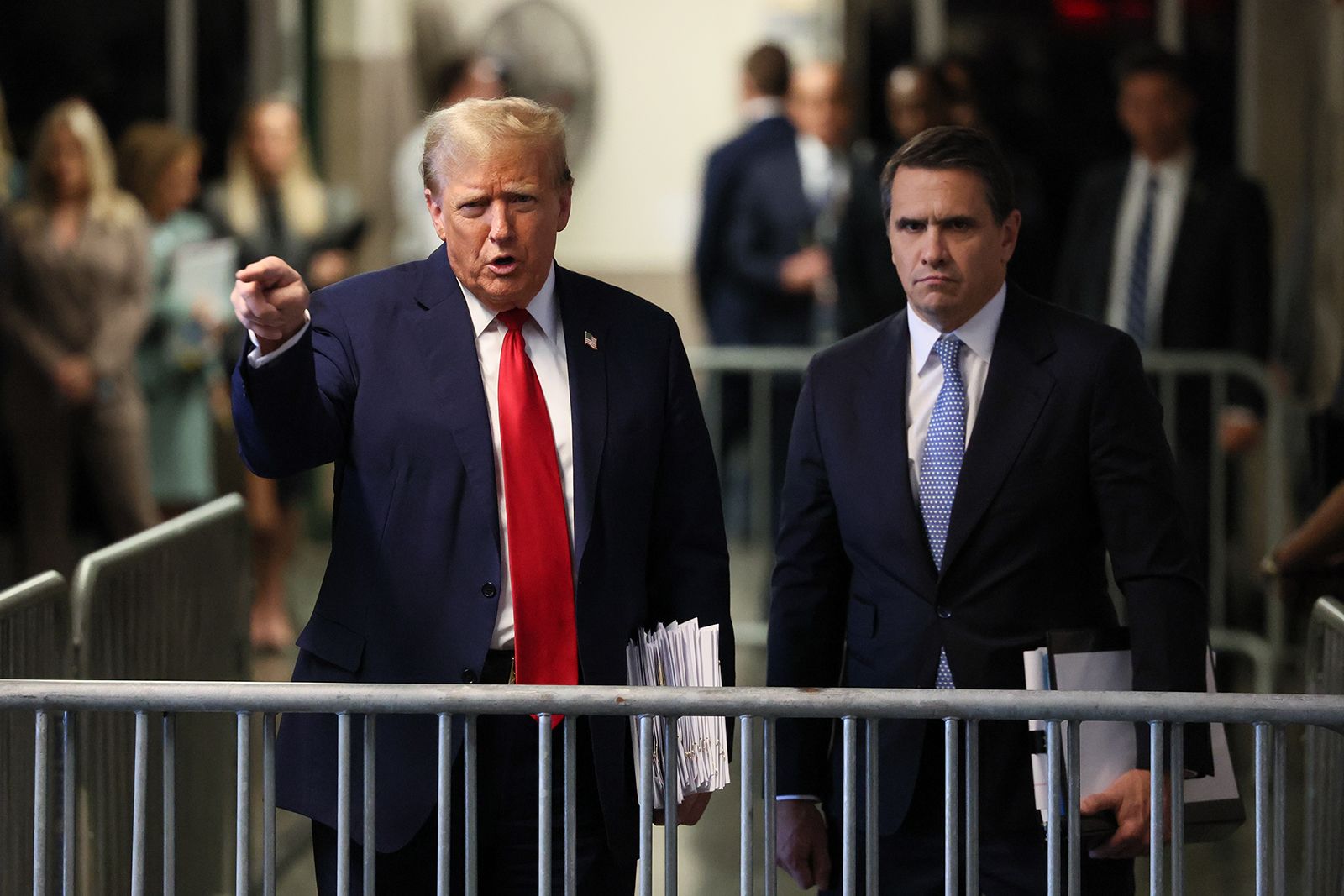For many, a personal criminal trial would be a defining moment. Yet, for former President Donald Trump, his return to the hush money trial on Thursday is overshadowed by another courtroom drama. Trump’s attention is likely to be divided between a chilly New York courtroom and the grandeur of the US Supreme Court, where justices will hear arguments in his sweeping immunity case. This case could significantly impact Trump’s legal fate and raises unprecedented questions about presidential powers.
The simultaneous court dates add another layer of complexity to the narrative of the presumptive Republican nominee. Trump, who is once again pushing the boundaries of America’s judicial and constitutional systems in his bid to retake the White House, has made it clear he would prefer to be in Washington. There, he could watch Supreme Court justices, three of whom he appointed, debate his claim of immunity from prosecution for actions taken during his presidency.
However, Trump must also attend to his trial in New York, where former tabloid publisher David Pecker is testifying. Prosecutors allege that Trump attempted to mislead voters during the 2016 general election by concealing an affair, a claim Trump denies. Trump has criticized Judge Juan Merchan for preventing him from attending the Supreme Court hearing, accusing Merchan of considering himself “above the Supreme Court.”
While the outcome of the New York case will be determined by a jury, Trump is also appealing to a broader audience: the general electorate. Many Trump supporters remain skeptical of attempts to hold him accountable for his personal, business, and political behavior. Trump is also leveraging his on-camera appearances to bolster his campaign finance operation, having already raised $5.6 million online during the first week of his criminal trial.
Trump’s Supreme Court case is also a key part of his campaign strategy. The case is potentially historic in its audacious reach for power and serves as a metaphor for a former and possible future president who recognizes no limits on his authority or constitutional constraints. However, Trump’s team also hopes to delay his federal election interference trial by claiming absolute presidential immunity.
Despite these tactics, Wednesday brought another reminder of Trump’s alleged scheme to overturn the 2020 election. A grand jury in Arizona indicted several of Trump’s closest advisers over election subversion schemes, suggesting that Trump is an unindicted co-conspirator. Similarly, an investigator testified that Trump is an unindicted co-conspirator in the Michigan fake electors probe.
Thursday is not the first time Trump has had to juggle court proceedings in different cities, reflecting the depth of his legal troubles and their entanglement with his bid for a second term. While his current trial may lack the constitutional stakes of the Supreme Court case, both Trump and prosecutors are bracing for a significant moment. Judge Merchan is considering action after prosecutors claimed that Trump had repeatedly and deliberately violated a gag order designed to protect those involved in the high-profile case.
As the trial resumes, David Pecker, former CEO of American Media, will return to the stand. Prosecutors are using Pecker’s testimony to expose a “catch and kill” scheme to suppress unflattering stories about Trump before the 2016 election. Despite the unfolding drama in New York, Trump’s attention may be elsewhere on Thursday morning, as the conservative Supreme Court majority he largely appointed considers his immunity claim.

